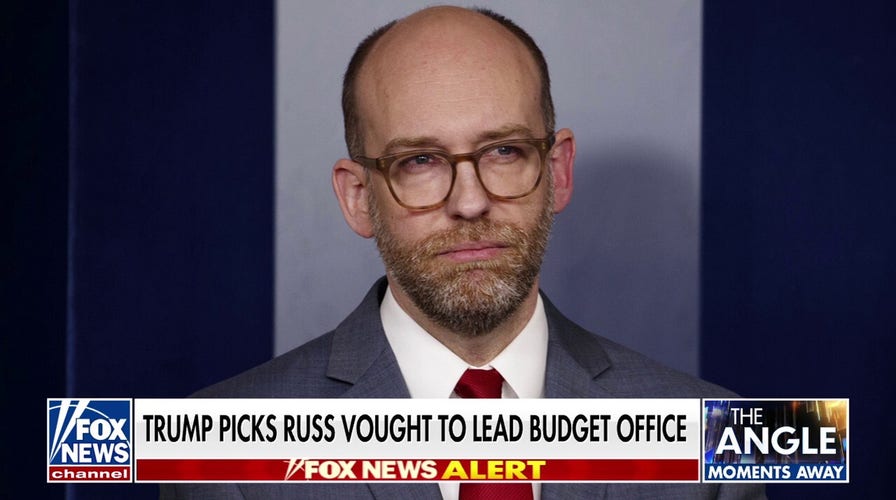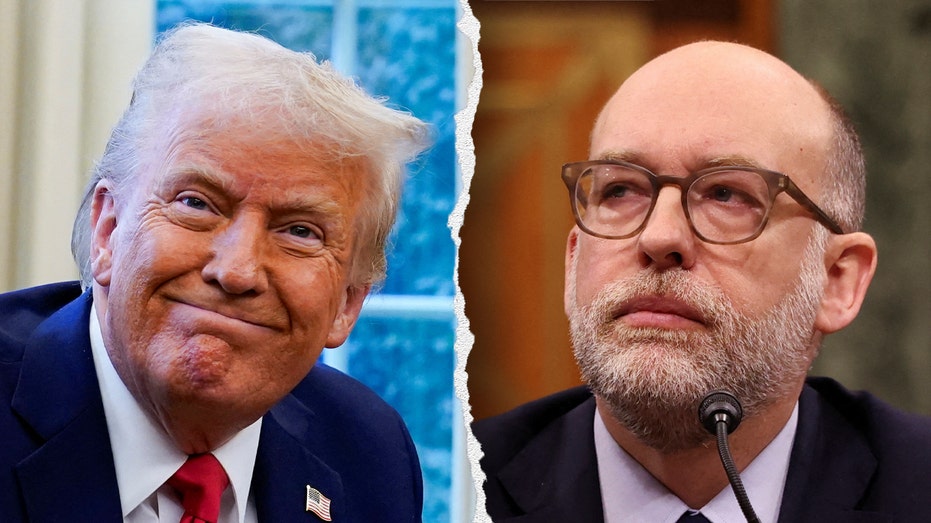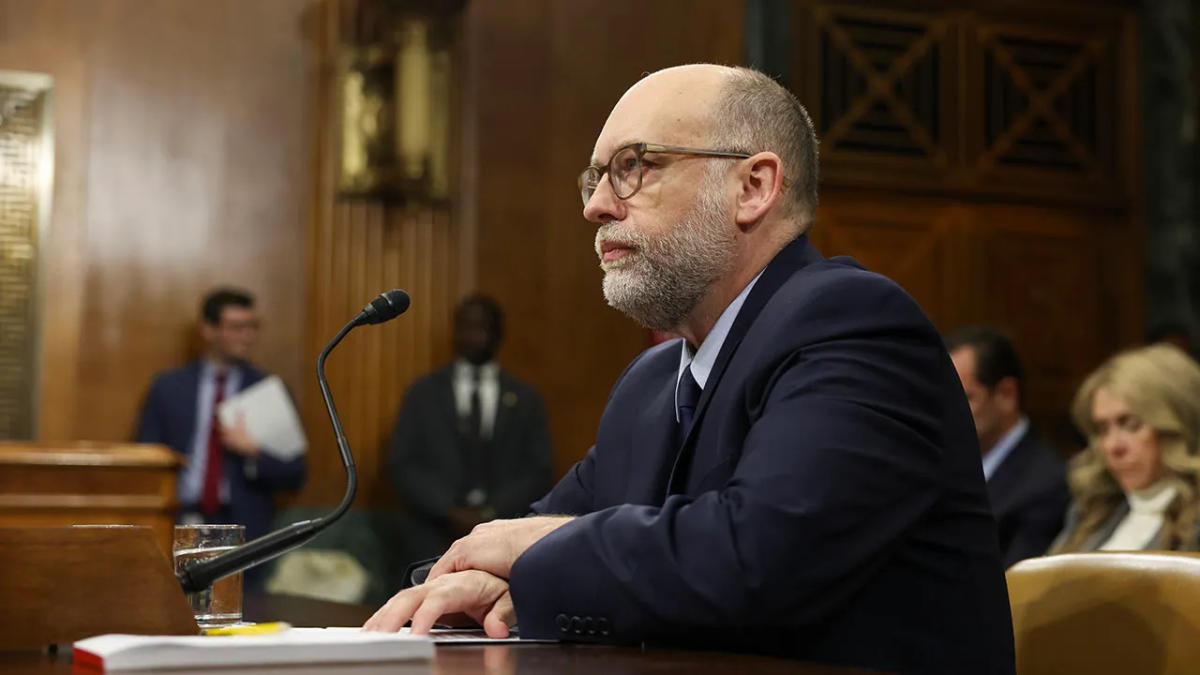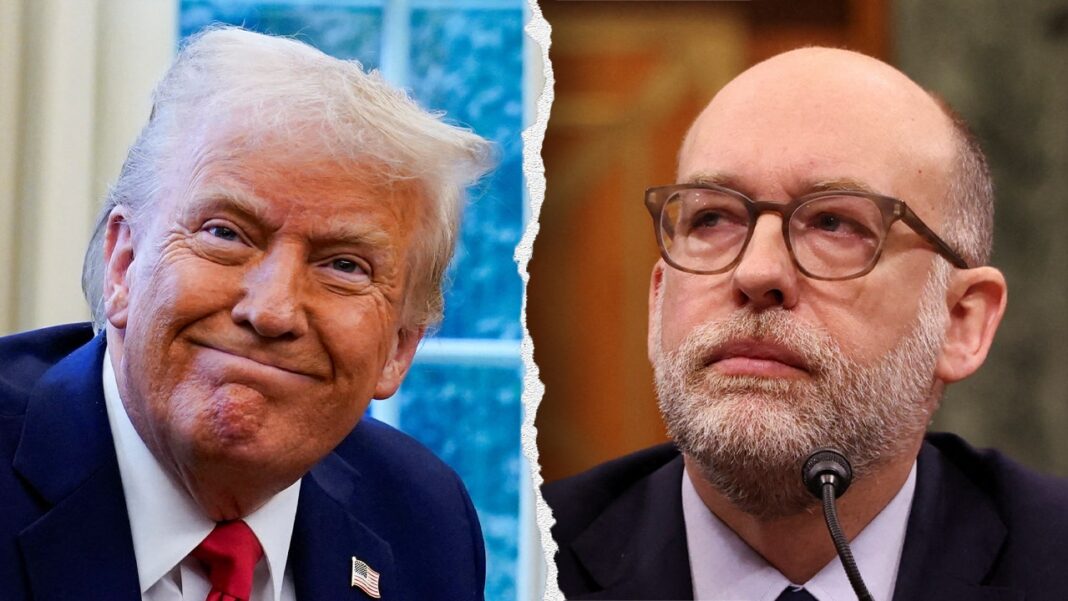As the United States hurtles towards the brink of a constitutional crisis, the usually quiet halls of Congress have erupted into a cacophony of controversy. The latest salvo in this high-stakes showdown has been fired by the confirmation of Russell Vought, Director of the Office of Management and Budget (OMB), in a vote that has sent shockwaves through the nation’s capital. The Impoundment Control Act, a decades-old law meant to safeguard the legislative branch’s power, has taken center stage as the linchpin in this unfolding drama. This landmark statute, once a distant memory, has been thrust into the spotlight as lawmakers grapple with the implications of Vought’s confirmation and its potential to upend the delicate balance of power between the executive and legislative branches. As the stakes continue to rise, one question hangs in the balance: will the Impoundment Control Act become the unlikely hero that saves our democracy from the brink, or will it succumb to the whims of a powerful administration
The Rise of a Constitutional Crisis: Impoundment Control Act at the Forefront
Understanding the Impoundment Control Act

In 1974, Congress passed the Impoundment Control Act (ICA) in response to concerns about presidential overreach in the realm of government spending. The act aimed to reassert Congress’s constitutional power of the purse, enshrined in Article I of the U.S. Constitution, which grants it the authority to control federal finances. Prior to the ICA, presidents had the power to unilaterally withhold or “impound” funds that Congress had appropriated, effectively circumventing the legislative branch’s budgetary authority.
The ICA bars the executive branch from unilaterally withholding appropriated funds. It establishes clear channels of communication and congressional oversight, requiring the executive branch to justify any deferral or spending reductions to Congress and seek its approval before implementing such changes.

The Act in Modern Times: Balancing Power Between Branches
The ICA remains a cornerstone of the separation of powers in the American government. It ensures that the legislative branch, representing the will of the people, maintains its rightful authority over the nation’s finances. The act establishes a system of checks and balances, preventing any one branch from accumulating excessive power.
When a president wishes to spend less than the amount allocated by Congress, the executive branch must follow a specific procedure outlined in the ICA. They must formally notify Congress of their intention and provide a detailed justification for the proposed reduction. Congress then has the opportunity to review the request, hold hearings, and ultimately decide whether to approve or reject the president’s proposal.

Key Provisions and Implications
The ICA contains several key provisions that have shaped the relationship between the executive and legislative branches in managing federal funds:
- Requirement for Presidential Justification: The president must provide a written explanation to Congress for any proposed impoundment of funds, outlining the reasons behind the decision.
- Congressional Review: Congress has the opportunity to review and challenge the president’s proposed impoundments. They can hold hearings, subpoena witnesses, and ultimately vote to override a presidential impoundment if they deem it unjustified.
- Mandatory Spending: The ICA specifically prohibits the impoundment of mandatory spending, which is funding obligated by law to certain programs or individuals, such as Social Security and Medicare.
These provisions ensure that Congress maintains a vital role in overseeing government spending. They prevent the president from unilaterally altering the budget and allow for public scrutiny and debate over fiscal decisions.
The Conflict Over Russell Vought’s Confirmation
Vought’s Stance on the Impoundment Control Act: A Point of Contention
Russell Vought, President Trump’s nominee for Director of the Office of Management and Budget (OMB) in 2020, sparked intense controversy due to his views on the Impoundment Control Act. Vought publicly expressed his belief that the ICA was unconstitutional, arguing that presidents historically had the authority to manage federal funds without congressional approval. This stance directly challenged the legislative branch’s power of the purse and raised concerns among Democrats about the potential for executive overreach.
The Senate Vote and Its Aftermath
The Senate ultimately confirmed Vought by a 53-47 vote along party lines, following a 30-hour delay from Democratic lawmakers in protest. Republicans defended Vought’s nomination, asserting that his previous experience as Deputy OMB Director during Trump’s first term demonstrated his qualifications for the role. They argued that his views on the ICA were a matter of constitutional interpretation and not a disqualifying factor.
Democrats, however, remained steadfastly opposed to Vought’s nomination, citing his stance on the ICA as a threat to the balance of power between the branches of government. They argued that his appointment would embolden the Trump administration to disregard congressional authority and potentially undermine essential programs and services.
Democratic Opposition and the ‘Constitutional Crisis’ Narrative
Senate Democrats, led by figures like Senator Richard Blumenthal of Connecticut, characterized Vought’s views as a “constitutional crisis” in the making. They argued that his belief in the president’s unchecked authority over federal funds represented a dangerous precedent and a fundamental challenge to the principles of American democracy. They expressed concern that Vought’s appointment would further erode the separation of powers and pave the way for executive overreach in other areas of government.
The Implications of the Impoundment Control Act and Vought’s Confirmation
A Power Struggle in Washington: Executive vs. Legislative Branch
The confirmation of Russell Vought and the ongoing debate surrounding the Impoundment Control Act reflect a broader power struggle between the executive and legislative branches of the U.S. government. This tension has been amplified in recent years by the increasingly partisan nature of American politics and the willingness of some in power to challenge established norms and institutions.
President Trump’s repeated attempts to circumvent or override congressional authority, including his stance on the ICA and his calls for increased executive discretion in spending, have raised concerns among many about the erosion of democratic checks and balances. This tension has been further exacerbated by the Republican-controlled Senate’s willingness to confirm controversial nominees like Vought, who share the president’s views on executive power.
Potential Changes and Future Developments
The Impoundment Control Act and the confirmation of Russell Vought have significant implications for the future of government spending and the balance of power in Washington. It remains to be seen how Vought, as Director of the OMB, will navigate this complex landscape.
- Increased Executive Impoundment: Critics of the ICA argue that it unduly restricts the president’s ability to manage the budget effectively. Some fear that Vought, with his stated views on the act’s constitutionality, could attempt to expand executive discretion in spending, potentially leading to a resurgence of impoundment practices.
- Congressional Pushback: Conversely, Congress, particularly Democrats, may seek to further strengthen the ICA and codify its protections against executive overreach. This could involve introducing new legislation, holding hearings, or even utilizing its oversight powers to challenge any attempts by the Trump administration to circumvent the act.
The Courts and the Future of the Impoundment Control Act
The courts will likely play a significant role in shaping the debate over the Impoundment Control Act in the years to come. If the Trump administration were to take aggressive steps to disregard the act, legal challenges could emerge, ultimately leading to a Supreme Court ruling on its constitutionality. Such a decision could have profound implications for the balance of power between the branches of government and the future of federal budgeting.
Conclusion
Conclusion: Impounding Democracy – The Constitution Takes Center Stage
In our comprehensive analysis of the Impoundment Control Act’s resurgence in the wake of Russell Vought’s confirmation, we delved into the intricate dynamics of the US budgeting process and its constitutional implications. We examined how the Act’s intended purpose of preventing presidential overreach in budgetary matters has been increasingly disregarded, leaving lawmakers vulnerable to executive branch manipulation. The article also highlighted the contentious nature of the confirmation process, which underscored the significance of the Impoundment Control Act as a safeguard against the abuse of executive power.
The implications of this crisis in constitutional governance are far-reaching and profound. The erosion of the Impoundment Control Act’s effectiveness not only undermines the balance of power between the legislative and executive branches but also threatens the very fabric of democratic accountability. If left unchecked, this trend could embolden future administrations to disregard constitutional checks and balances, paving the way for an executive branch that operates with unchecked authority. As we move forward, it is imperative that lawmakers and citizens alike recognize the gravity of this situation and work collectively to restore the integrity of the Impoundment Control Act.
In the end, the fate of our democracy hangs in the balance. Will we continue down a path of constitutional erosion, sacrificing the principles of Checks and Balances for the sake of expediency? Or will we rally behind the Impoundment Control Act, reaffirming our commitment to the rule of law and the sacred institutions that underpin our republic? The choice is ours, and the clock is ticking.
